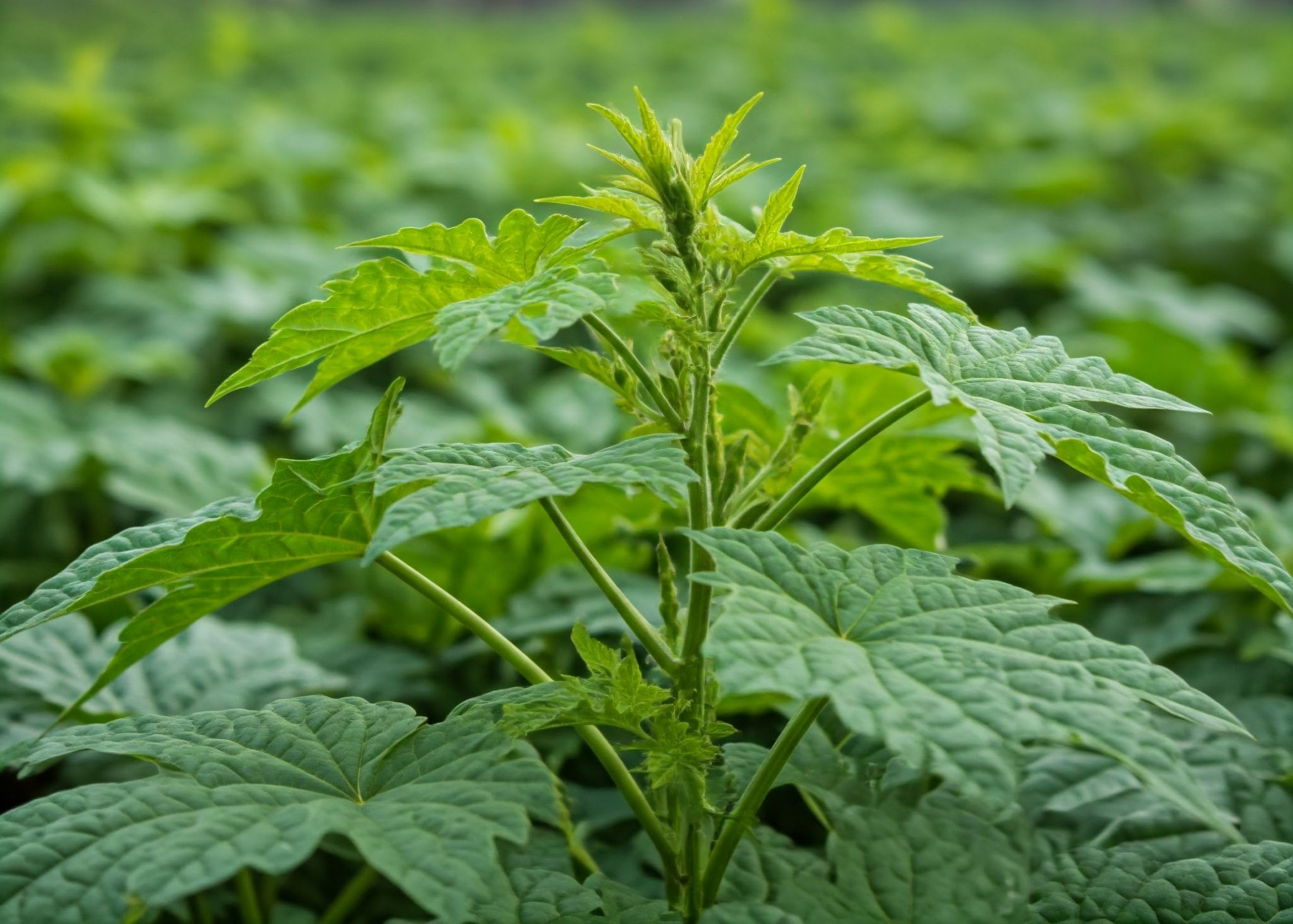Nigeria boasts a vast agricultural sector, underpinned by 34 million hectares of arable land. This includes 6.5 million hectares dedicated to permanent crops and an expansive 28.6 million hectares of meadows and pastures. Agriculture contributes significantly to the nation’s economy, accounting for approximately 24% of Nigeria’s GDP.
The country is a leading agricultural producer, excelling in various crops. These include cocoa, yam, cassava, maize, beans, millet, sorghum, onions, rice, potatoes, carrots, and pears, among others.
However, one major agricultural produce that often escapes mention is bitter leaf. The vegetable is widely consumed across Nigeria, primarily cultivated in the Eastern and Southern regions of the country.
What does bitter leaf do in the body?
Bitter leaf, scientifically known as Vernonia amygdalina, is a shrub native to the tropics, particularly in countries like Nigeria. Its uses extend beyond culinary to medicinal purposes.
The plant has gained significant attention due to its disease-fighting or preventive qualities. Research has shown that it exhibits noticeable efficacy in the treatment or control of various illnesses, such as nausea, malaria, diabetes, and liver diseases. It has even been used to treat infertility and sundry bacterial infections.
This has led to renewed interest in its cultivation, proving to be a significant source of income for many.
Theresa Okwechime: a bitter leaf farmer
Theresa Okwechime, a 28-year-old university graduate, with a degree in microbiology, ventured into bitter leaf farming after struggling with various entrepreneurial ventures.
She defied expectations by turning a seemingly mundane agricultural product into a thriving business, finding unexpected success in the unlikely realm of bitter leaf.
Driven by a desire to break free from the constraints of traditional employment, Okwechime embarked on a series of entrepreneurial pursuits, each with varying degrees of success. A chance encounter with a friend involved in the bitter leaf business sparked a new idea.
From consumer to producer
Instead of following the traditional path, Theresa decided to innovate. She began by approaching restaurants in the Ojo axis of Lagos state, offering them washed and ready-to-use bitter leaves. This approach resonated with many establishments, and soon she had numerous clients.
“Washing bitter leaf is certainly not glamorous,” she admits, “but the prospect of earning a substantial income at the end of the week was incredibly motivating.”
Okwechime initially purchased the leaves from her friend who introduced her to the business and made a small profit by washing and selling them to food businesses.
As patronage and demand grew, she realised that she could make significantly more money by growing the vegetables herself. She leased a parcel of land from her friend and eventually took over the entire farm when her friend travelled abroad.
“To be honest, I never thought I would go into farming full-time, as I was just trying to make ends meet selling the washed vegetables,” she disclosed.
Upon her friend’s relocation, she assumed cultivation of the entire plot of land. This activity demanded all her effort and time.
A blossoming business
Subsequently, her dedication paid off, as she now operates the bitter leaf farm and enjoys a monthly income of at least ₦160,000. For context, this is more than double the minimum wage in Nigeria.
Okwechime sells a sizable bunch of bitter leaves for as much as ₦8,000 to ₦10,000, especially during the dry season. She explained that the price drops in the rainy season due to the abundance of the leaves.
“Most of my customers buy for cooking, especially for ‘onugbu’ soup, but recently, I’ve received orders for bitter leaf from customers who take them abroad for medicinal purposes and preparations,” she revealed.
Theresa advocates for the agricultural route as a viable alternative for those seeking traditional white-collar jobs.
“I studied microbiology in university and would most likely have ended up working in a lab,” she says. “Since I have not been the typical 9-to-5 type, I have dabbled in many businesses until I was introduced to this. It has been an eye-opener for me regarding the opportunities that exist in the often-overlooked agricultural sector. I am now combining bitter leaf farming with other vegetables like water leaf and pepper, and I also plan to grow a few plantain suckers soon.”
Okwechime stated that this business has helped her overcome financial challenges, enabling her to afford necessities and a few luxuries.
Nigeria’s bitter leaf market: opportunities and challenges
The Nigerian culinary scene is witnessing a renewed appreciation for traditional dishes, fueling a surge in demand for locally sourced ingredients like bitter leaf. This has created a thriving market for farmers, offering both lucrative opportunities and significant challenges. The relatively low capital investment required to start a small-scale farm makes this venture enticing.
It is equally important to note some of the several hurdles that exist in the business. Price fluctuations due to factors like seasonality and transportation costs pose a significant risk to farmers’ incomes. Moreover, traditional farming practices, while widely used, often limit productivity and quality.
Furthermore, pests and diseases, such as caterpillars and fungal infections, can devastate crops, impacting yields and farmer livelihoods. Inadequate storage and transportation infrastructure also contribute to significant post-harvest losses, further reducing farmers’ earnings.
The way forward
To enhance the sustainability and profitability of the bitter leaf business, experts stress the need for farmers to adopt modern agricultural practices. Some of these methods include utilising improved seed varieties, implementing effective pest and disease control measures, and improving post-harvest handling techniques.
Also, the Nigerian government can play a vital role by investing in infrastructure development, providing access to credit and training programs for farmers, and promoting research and development in bitter leaf cultivation.



